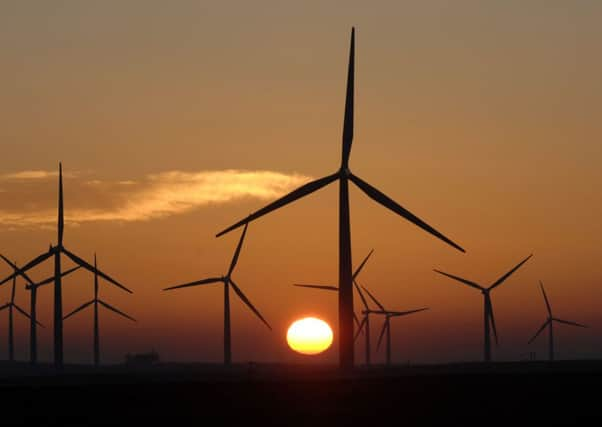Renewables projects ‘held up by uncertainty’


The Energy Bill passed into law last month with the promise of driving the £110 billion of investment needed to replace polluting power plants while heading off the risk of blackouts.
The Act’s lengthy passage – 54 weeks through the House of Commons and the House of Lords – was not helped by the on-going furore over household utility bills, nor the subsequent wrangle over the cost of government green initiatives.
Advertisement
Hide AdAdvertisement
Hide AdNevertheless, Energy Secretary Ed Davey, declared: “We have driven the Energy Bill through parliament on time to send out a clear signal to investors and industry. We have delivered the certainty they need and confirmed Britain’s position as one of the most attractive countries in the world to invest in energy generation.”
Though clean energy producers have been guaranteed a minimum price for their electricity, assurances on other crucial matters are less clear. Industry sources say these ambiguities are continuing to hold up investment decisions.
One major Scottish project that has seen little progress is the £125 million wind turbine factory due to be built in Leith by Spanish renewable group Gamesa.
First announced in March 2012, the plant will make blades and generator units for offshore wind turbines, creating 800 jobs. There have been no announcements since the memorandum of understanding (MoU) was signed, and no one from Gamesa could be reached last week for comment. Scottish Hydro owner SSE signed an MoU in December 2011 to build an offshore wind facility at Dundee which would create 700 jobs. It too has gone quiet, with a spokesman confirming last week that the company doesn’t “have anything to say on it at the moment”.
As the property owner in both projects, Forth Ports said it is trying to move developments forward. “In Dundee we are continuing to work with our partners SSE, Scottish Enterprise and Dundee City Council to attract investment; and in Leith there are a number of parties interested in locating at the port,” a spokesman said.
“However, until we know how the outcome of the Electricity Market Reform shapes the energy market there is still much uncertainty for many organisations in the renewables marketplace.”
Electricity Market Reform (EMR) lies at the heart of the Energy Bill, and will dictate how clean energy providers receive their guaranteed payments. However, many of its elements will require state aid approval from the European Commission.
There will also be a three-year overlap between the existing Renewables Obligation (RO) payment support system and the new Contracts for Difference (CfD) being brought in by reform. James Beard of the Renewable Energy Association points out that while both will draw from the same pot of money, it is not known how much will be allocated through RO versus CfD.
Advertisement
Hide AdAdvertisement
Hide Ad“The passage of the Energy Bill meant that some of the balls came down to the ground, but there are quite a few balls still in the air right now,” he said.
Michael Rieley, senior policy manager at Scottish Renewables, said: “Delivering EMR is a significant challenge and in the shorter term will cause uncertainty as we transition from the [Renewables Obligation]. However, the challenge is not insurmountable.”